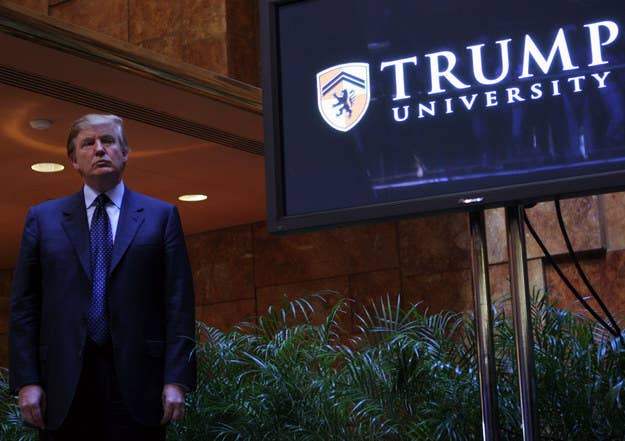
A lawyer who led two lawsuits against Trump University, settled for $21 million just weeks after Donald Trump's election victory, says the suits would have been "almost impossible" to pursue under a law currently being pushed by Republicans in Congress.
Helen Zeldes, a founding partner of ZHE Law, investigated and initiated one of two class-action lawsuits against Trump University, along with a team at her firm, alleging the pricey real estate seminars scammed thousands of people out of tens of millions of dollars. The suits ended with all students recovering at least half of what they paid for the seminars — figures that often ran into the tens of thousands of dollars.
A proposed law that would limit such class-action lawsuits cleared the House Judiciary Committee last week. Class-action lawsuits allow people to group together and sue large businesses, and a thriving industry of lawyers and firms specialize in launching such cases on behalf of consumers.
Republicans and business lobbyists have long pushed to reform the system, saying it is exploited by lawyers who file frivolous cases. Republican Rep. Bob Goodlatte, the Chairman of the Judiciary Committee and author of the bill, introduced a similar proposal last year.
"This is the death knell for class actions," Zeldes told BuzzFeed News. "It has this very benign title — The Fairness In Class Action Litigation Act — and I think in general consumers aren’t aware that this is a corporate immunity act."
Rep. Goodlatte has said the suggested reforms "will keep baseless class action suits away from innocent parties, while still keeping the doors to justice open for parties with real and legitimate claims."
But class action lawyers say many doors will be shut. According to Zeldes, as well as the American Association for Justice, a national plaintiff lawyer association, the legislation would ensure many important cases never make it to court.
The way that lawmakers have chosen to try and change the class action system has also raised eyebrows. By passing a law altering the rules of court procedures, Congress would "unnecessarily circumvent" the established system for changing such rules, the American Bar Association said in a letter.
A judicial oversight body, whose members include Trump’s own Supreme Court pick, Neil M. Gorsuch, wrote its own letter to Rep. Goodlatte regarding the bill earlier this month. "We strongly urge Congress not to amend the class action procedures," by passing a law, its chairman wrote, saying that "proven and well-established procedures" exist for making such changes in a way that are more transparent and open for public review.
Speaking to BuzzFeed News, Zeldes identified several aspects of the bill that would have made her firm much less likely to pursue a suit like the Trump University case.
First, she said, the bill would only allow class-action suits where every participant experienced the same type and scope of injury. "Since some named class members paid for a $10,000 class and some paid for the $24,000 class, it would be difficult to show they had the exact same injury," Zeldes said.
The bill also requires lawyers to show there is a reliable way they can identify everyone injured by the defendant, and distribute damages to them. It means that if a company has lax record keeping — not unheard of among businesses committing fraud or labor violations — that's "a really tough burden for the plaintiff to meet," Zeldes said. Instead, the defendant "benefits from their own bad record-keeping."
A final hurdle, and probably the largest in the legislation, according to Zeldes, is the requirement that lawyers cannot be paid their fees until all class members — sometimes thousands or tens of thousands of people — have received their payments.
That would make it "financially almost impossible to bring these cases forward," she said.
Distributing money to victims can go on for years in some class action cases, and lawyers generally only get paid if they win or settle the suit. In the case of Trump University, Zeldes said, the lawsuit stretched out for more than six years, with the lawyers taking the risk of years of unpaid work, with no guarantee of getting paid at the end.
"Class actions are already very cost prohibitive," she said — itself a reason why, class action lawyers say, claims of a plague of unjustified lawsuits brought only to enrich lawyers have been exaggerated by businesses.
"There is already disincentive to work for free," she said. "Why would we spend hundreds of thousands of hours of our own time on a frivolous case?"
